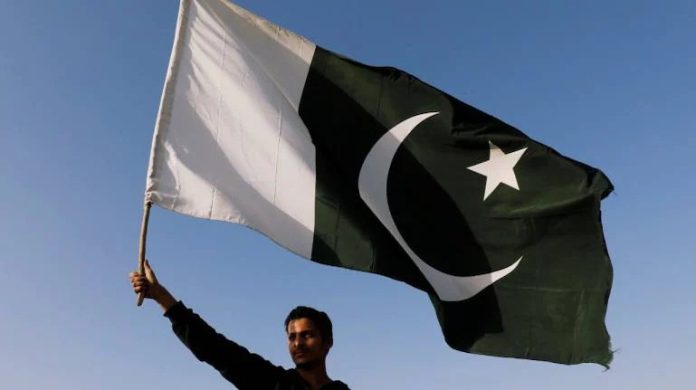Protests against rising electricity and petrol prices have rocked Pakistan over the past week, with thousands taking to city streets and setting their electricity bills alight.
The cost of electricity has doubled in the last three months to about 50 rupees (12p) a kilowatt. Petrol prices have shot up from 262 rupees a litre in June to 305 rupees this month.
Pakistan is in the midst of political and economic turmoil, with a record inflation rate of 36.4% and the prime minister, Imran Khan, ousted in April last year after a vote of no confidence. The country was also devastated by floods last year, which submerged much of the country.
Protests turned violent in Karachi last week when a worker from the utility company K-Electric (KE), which generates and distributes power to the city, was attacked by an enraged mob.
In Khyber Pakhtunkhwa province, the energy department requested police protection for its staff and installations after threats of attacks by protesters, according to VoA.
“Hunger can bring out the worse in people,” said Atiq Mir, president of the All Karachi Tajir Ittehad, a traders’ association.
The protests culminated at the weekend when shops and markets across Pakistan closed in response to a call by the Islamist party Jamaat-e-Islami. Closures on Friday and Saturday are thought to have cost the country an estimated 10bn rupees (£25m).
Mohammad Niaz, 37, who worked in Saudi Arabia until the Covid pandemic forced him back to Pakistan, said the 30,000 rupees he earned every month as a waiter was not enough to cover his expenses. “Food prices have skyrocketed, and my electricity bill has doubled in the last three months – when we just have electricity for nine hours in a day.”
After setting aside 6,000 rupees for school fees for his two children, and their bus fares, books and stationery, there was little left for food, he said.
According to the Pakistan Bureau of Statistics, the price of wheat flour has more than doubled since August 2022, meaning bread has doubled in price too. Sugar is also more expensive.
Perween Riaz, 54, a Karachi resident of nearly 20 years, said she may move back to her village in Punjab province. “Karachi is not for the poor any more,” said the carer, who earns 25,000 rupees a month. Her husband earns the same, working as a driver, and they have six children and two grandchildren to feed.
“In the last one year, food prices have only increased,” she said, adding that her monthly groceries cost double what she paid two years ago.
KE’s director of communications, Imran Rana, said: “Prices of electricity are set by the government for the entire country, yet utilities across the country are under fire for something they do not control.
“Violence is not the answer,” he said. “Assaulting utility staff, who are doing their job, will only compound the situation.”
The energy minister, Muhammad Ali, said the government was working to resolve the situation, but many of the current issues were outside its control.
“The soaring dollar rate and increase in global petroleum prices have meant that petroleum products are costing Pakistan much more,” he said.
“In turn, they must be sold at the same high rate, which has led to a rise in electricity rates since the power was partly being generated from expensive imported fuel. This had to, unfortunately, be passed on to the consumers.”
The caretaker government’s hands were tied, he added, because of a deal the previous government made with the International Monetary Fund to raise prices as a condition of securing a $3bn (£2.4bn) loan to avoid defaulting on foreign debt in July.
Another condition was an end to fuel subsidies. “In the next few months, we are trying our best to take things towards betterment,” said the minister. “Solutions have long been known but were never implemented.”
There have been calls for traders to revise their opening hours to avoid using electricity between 6.30pm and 10.30pm when charges are highest. Most traders currently operate from noon to 10pm. The move has been resisted by traders in the past.
A few have escaped the energy price rises. Azher Karimjee, a businessman, put 10KW solar panels on the roof and installed storage batteries when he built his house three years ago, and has “not paid a rupee to KE” because he is able to produce enough energy to sell it back to the power company.
“It was the best decision I made, although I have to admit the capital cost was high. Having storage batteries has been a big advantage during peak evening usage.”
The government is considering whether to regulate this tariff system to avoid losing revenue as rising “capacity payments” to independent power producers, which are fixed against interest and exchange rates, have increased as the rupee has depreciated and interest rates have risen.









































